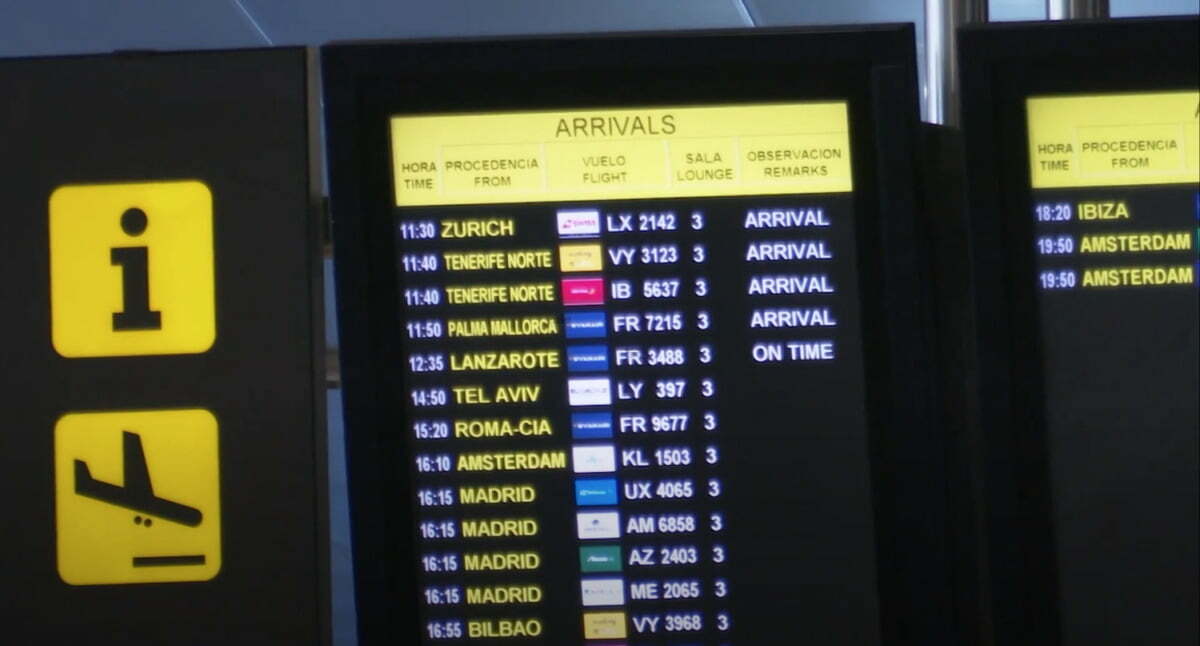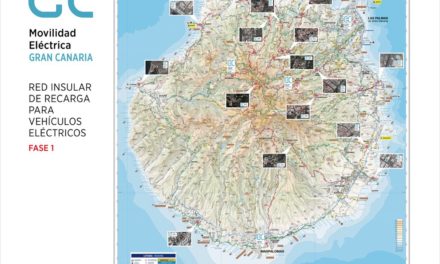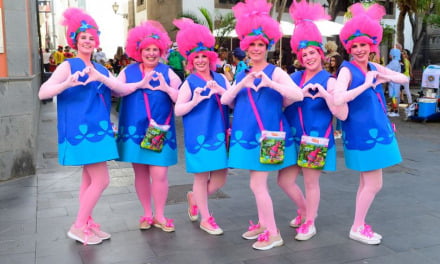The Dutch can travel here from Saturday. Spain’s Ministry of Foreign affairs are set to allow travel from the UK into Spain without tests from May 20. The UK have separated their advice for Canary Islands from the rest of Spain, it is thought in preparation to soon allow return travel from the UK without quarantine. Right now Spain is on the UK Amber list, which means travel is allowed after Monday, but requires 5-10 days of quarantine and negative PCR results.
 For the moment however it still remains true that only legal residents or people travelling for essential reasons can enter Spain, with tourism still prohibited, though this week Spain’s tourism minister has expressed confidence that is soon about to change.
For the moment however it still remains true that only legal residents or people travelling for essential reasons can enter Spain, with tourism still prohibited, though this week Spain’s tourism minister has expressed confidence that is soon about to change.
The UK Foreign Affairs office has made clear that they support that “there are restrictions and curfews that vary between regions“, but recommend “before you travel,” that travellers familiarise themselves with “Spain’s current entry restrictions and requirements.” They make clear also that “these may change with little warning.” warning Brits to “Monitor this advice for the latest updates and stay in contact with your travel provider.”
Starting this Monday, May 17, the UK will open its borders and allow citizens to travel to 12 destinations, without the need for mandatory quarantine upon return. Though Spain is not currently on this list, the country is marked on the UK amber list, which will allow travel to the UKs favourite holiday destinations, but with the requirement to take a test and quarantine at home, on return to Britain, for a minimum of five days, ir they are negative on two PCR tests, which they must pay for themselves, or ten days if they choose not to take the second test.
Spain is negotiating with the United Kingdom for the reactivation of tourism, having blocked incoming tourists in the face of the pandemic, and now the infection rates have significantly dropped, Reyes Maroto, Minister for Industry, Commerce and Tourism, has made clear that she is working hard to resume the tourist flows between both countries.
“We are reviewing recommendation 912 (regarding the temporary restriction of non-essential travel within the EU) and it is being negotiated in the framework of the Ministry of Foreign Affairs, which will be approve new guidance on May 20 to allow the British to come to Spain without PCR”, she asserted last Tuesday, following Spain’s Council of Ministers meeting in Madrid. In addition, she said “we must offer certainty” to the British to come emphasising that it is essential “to continue lowering the accumulated incidence and increase vaccinations” if Spain wants to be included on the UK Green List.
Maroto has said that there is the will of the Government and the CCAA to control the pandemic, “something that will allow British tourism to reactivate.” In addition, “the purchase of 17 million doses of Pfizer accelerates the vaccination plan”, something that has been cataloged as key to ” give confidence and plan trips .” He has ruled that the massive purchase of vaccines “will make it possible to show that we are open, that we are going to be a safe destination and that we are looking forward to receiving them.”
Netherlands will allow travel to Canary Islands from Saturday
The Government of the Netherlands have this Friday announced that they will allow, as of Saturday 15 May, Dutch holidaymakers to travel to the islands – both the Canary Islands and the Balearic Islands – without having to undergo an active covid diagnostic test or quarantine upon return to the country.
Holland has been one of the most restrictive countries when it comes to putting limits on travel and until now forced passengers who returned from the Canary Islands to a test carried out four hours before the flight departure and a 15-day quarantine, which “has slowed down” many tourists, according to the vice president of the Federation of Hospitality and Tourism Entrepreneurs of Las Palmas (FEHT), Tom Smulders.
Following this week’s successful test group of more than 80 Dutch tourists selected to visit Gran Canaria, to demonstrate the island’s “Safe Tourism” credentials the Dutch Government have given their approval to reopen summer travel, though there are still restrictions in place for the Spanish mainland.
Dutch tourists will not have to quarantine or present a negative PCR upon return from the Balearic and Canary Islands. “I am pleased to announce that from tomorrow Dutch tourism will be open to the Balearic and Canary Islands,” wrote the Dutch Ambassador, Jan Versteeg on Twitter.
It is a pleasure to announce that from tomorrow Dutch tourism opens to the Balearic and Canary Islands. Travelers from the Islands will no longer have to submit a negative PCR test, or undergo a quarantine upon return to Flag of Netherlands#buenasnoticias #turismo pic.twitter.com/2NCg6kV2yZ
— Jan Versteeg????? (@JanVersteegBZ) May 14, 2021
Dutch tourism has been one of the source markets that has remained most constant, even despite the pandemic restrictions, almost 6,000 dutch tourists have visited the islands during the first three months of this year, similar to the amount of British who have also managed to visit during the first quarter. In the first 3 months of 2019, 4.5 million Brits had visited the islands along with almost 600,000 Dutch.















The British FCDO have stated on the Gov website for the past 6 months at least that the Canary Islands have been excluded from essential travel, it is not a recent change. I know as I have checked often and it was the same when I went on holiday to Gran Canaria last December.
We believe you are accurate. Precisely why we report that they continue to exclude Canary Islands, despite the fact that they have been changing the advice on Spain and the Balearics. It is very important to our region that we are able to retain this differentiation.